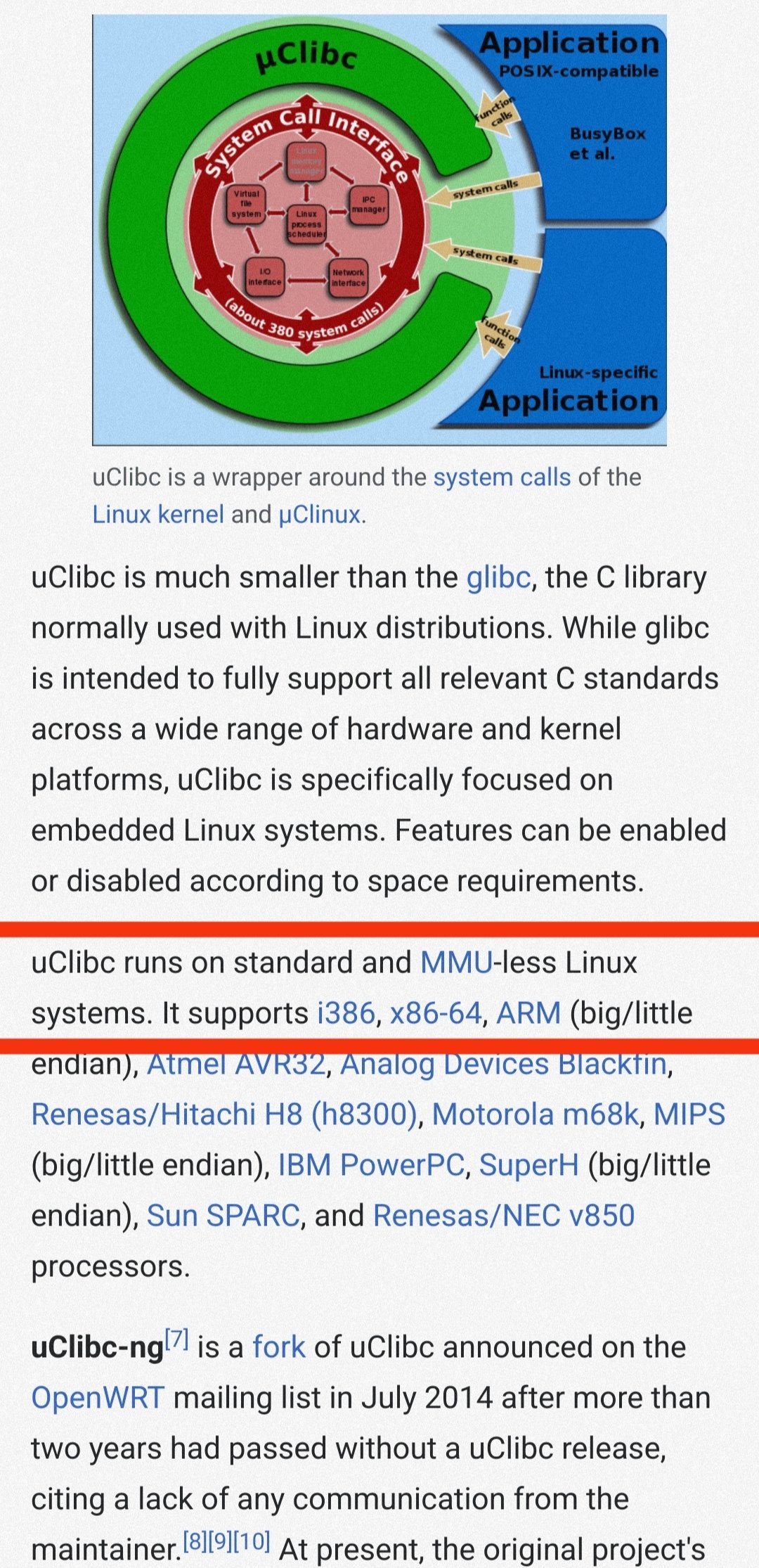ITT:

The internet is srs bzns.

New favorite format
Einstein Says is arguably a much better template.
But what if we enjoy doing that?
“It’s just a joke” is such a tired excuse for being called out on your shitty opinions
I prefer to put my swap partition on CD-RW.
That way you’ll know you’ve run out of physical memory when the cd-rom starts spinning up.
I hate that I kind of like this point…
Linux doesn’t wait for you to be out of memory to swap-out pages.
You can set swappiness to 0
Oh, my bad! Goes to show I’m not familiar enough with the workings of swap space.
That’s true for most people talking about swap online.
Goes to show I’m not familiar enough with the workings of swap space.
That’s exactly why we need a CD ROM based solution to explore how swap space works…/s
I wonder if anyone has actually managed to do this
someone put swap on google drive
Android studio was asking for more ram, what else would i do?
Use dropbox like any pleb would
https://manpages.ubuntu.com/manpages/xenial/man8/mount.davfs.8.html mount cloud memory as folder and put swapfile on it
Swap on S3. That’s brutal
Download more ram became possible with one simple trick)
Mount Cloud? Any chance I can mount Tifa instead?
I think you meant DVD-RAM.
Sup, that would actually be possible.
Anything can be ram if you wait long enough
I use my whiteboard for swap.
A robot that writes on the board and a camera to then read it back in
i’m swappin’ in ma ass ladies 😎
You could use a combination of printer and scanner as swap with the right driver…
Dangerously close to punchcards
Running out of Ram? Just 3D print more!
Yeah, never had a problem with incompatible hardware on Linux.
No siree, not a once!
Such an up and down though. I have an ancient epson scanner that cannot be used on modern windows, but I just installed the driver on linux and everything has been amazing.
Like pre-usb ancient or what?
Not quite that old, it is connectet via USB-B. Windows drivers only exist for 32 Bit systems, on linux the drrivers come in a deb package that works on modern installations.
You can install 32 bit drivers on Windows 11 though, it supports both.
He might have oversimplified to assume it was the 32-bitness that is the problem. Could be an ancient Windows Driver Model version that is no longer supported. Could have been that there were no signed drivers, or at least no drivers that are signed in a way that would pass today.
The thing is that Windows banks on extended binary driver compatibility for running “old” hardware, but breaks that compatibility ever so often, and they don’t have first-party investment in drivers for hardware and third-parties would eschew standard multiple device drivers that would have worked fine in favor of their own branded driver/app experience. In Linux, mostly those devices get covered by generic multi-vendor drivers that are better maintained.
Makes even less sense. 20 year old usb Epson flatbed scanner here that plugs into any win10/11 system and works without any fiddling, and that’s generally consistent with any usb hardware on Windows. I’m not saying linux isn’t a good solution to get problematic old hardware working, but let’s be real here.
Did you ever had to buy a new laptop because Linux stopped supporting the current one?
I’ve had the reverse. I started using arch because debian didn’t have my wifi driver yet.
Yeah WiFi seems to always be the biggest pain in the ass, and it’s still way easier than it was 15 years ago.
Haven’t had a single laptop with an issue, personally (though I only have bought Lenovo laptops in the past 7 years or so, but in that time I’ve bought 3). I’ve got one (really cheap) WiFi dongle I’ve had on my HTPC that had been a pain. Had I taken the time to choose the other really cheap one that had a different chipset, it would’ve worked out of the box. Oh well.
No but I am looking for a new laptop and this time I’ll definitely spent more time checking Linux compatibility.
My previous thinkpad worked fine out of the box, but my current laptop is an HP Omen, that I mostly selected for the price to performance ratio. But I immediately learned that Linux compatibility sucked. Like not being able to boot an Ubuntu usb drive (without messing with the boot parameters).
Yeah before getting my current laptop I looked into the Linux compatibility. I went Thinkpad though this time and it honestly works amazingly. I can’t use all the features (fingerprint mostly) but thats moreso because my setup doesn’t have any way to rather than support not existing. And biometric ID can be less than useless when used as the sole security measure, such as unlocking your phone with your fingerprint. If someone wants the data on that device bad enough, they now have a means to get it.
And in response to XKCD 538, good luck getting me to clearly say my complicated ass password correctly after being beaten lmao. If I could I probably would
I did the opposite. After one of the big updates, Windows 10 decided it was no longer going to work with the Vista-era drivers for an old Core 2 Duo laptop. To be fair to Microsoft, was I pretty impressed when I initially installed Windows 10 and it accepted those ancient drivers without any complaints on a laptop that was 10 years old at that time.
So I instead installed Manjaro and everything worked just fine.
No, since I mainly use Windows and replace my laptop at least once every 10 years.
- Windows XP: 2001-2014
- Windows Vista: 2007-2017
- Windows 7: 2009-2020
- Windows 8: 2012-2023
- Windows 10: 2015-2025
- Windows 11: 2021-…
TPM has existed in laptops since 2006
TPM has existed in laptops since 2006
Not particularly relevant. The only TPM that counts is TPM2, which was 2014 for the specification. Not even all “TPM 2.0” implementations are considered sufficient. Plenty of devices even in 2019 were being built without a TPM2 that would qualify for Windows 11, in part because the industry didn’t know that it was about to be required, in part among those that tried not knowing their chosen implementation would still not qualify.
This is not a problem with Linux, this is a problem with hardware manufacturers not making drivers for Linux.
Which is understandable, honestly. Making drivers is surely not an easy task. Targeting Windows covers the 80/20 rule.
I just broke out into a cold sweat remembering trying to get wifi to function on my netbook back in 2k8.
My friend, let me be that guy that says “that’s nothing!”. In 2002 (around kernel 2.14 I think it was) notebooks had no integrated wifi (at least not the second hand notebook I could afford, and it wasn’t cheap anyway). I had to buy a cisco pmcia wifi card from across the world and recompile the kernel to include wifi support (and the driver of course). I don’t remember why, but I remember that recompiling the kernel happened quite frequently. Maybe because I was distro hopping a lot or because there were quite (relatively speaking) kernel updates. Not good old days, but at least I learnt!
There was no DKMS back then (it appeared in 2003 and took a while longer to be adopted) so anything you wanted to add to the kernel and didn’t have a ready-made binary module for your exact machine and distro had to come as a patch + recompile.
But you try to tell the young people today that… and they won’t believe yah!
Here is an alternative Piped link(s):
https://piped.video/ue7wM0QC5LE?si=6qGRgsuMSx7NaA_D
Piped is a privacy-respecting open-source alternative frontend to YouTube.
I’m open-source; check me out at GitHub.
Oh lord, the time I spent trying to get an Airport wifi card working on a dual-USB iBook in Slackware… shudder.
My SMC network cards from the mid 90s are not supported 😭
Someone gave me an 8 year old laptop to clear down. So I figured I’d swap in an SSD and put Linux on it.
Damn thing wouldn’t even boot. Wasn’t even that bad a spec machine. 6GB RAM should have been plenty. Shame really, was actually looking forward to seeing how far it had come in the last ten years or so.
2016
Hmm. There’s no reason anything that supports 6gb RAM shouldn’t run Linux. I’ve janked together much worse Lubuntu rigs before.Exactly. Should have run. Something in the hardware it didn’t like. Just got a black screen with a flashing cursor. Never got past that point.
That sounds like a problem with the graphics drivers
Next step from there is to find out what graphics hardware it has and try to see if you can get a distro that’s known working with it
Technically, the next step would be retrieving it from the landfill it got sent to.
Well then, guess that clears that up
Yeah, very odd. A few weeks ago, I retired a computer that had 4 GB of RAM that was doing server duties, running Debian. It was doing a great job until I tried running a virtual machine on it (for Home Assistant); that was just killing the poor thing. The processor was a Core 2 Quad that was introduced in 2008, so I got plenty of life out of that setup.
deleted by creator
6gb ram is plenty, especially for a lightweight distro like antix or slax.
From AntiX:
It should run on most computers, ranging from 256MB old systems with pre-configured swap to the latest powerful boxes. 512MB RAM is the recommended minimum for antiX. Installation to hard drive requires a minimum 7.0GB hard disk size.
More likely you have issues with incompatible software.
Nah hardware drivers or support for certain hardware is still a thing. I mean compared to 5 years ago it isn’t but compared to windows it still happens sometimes
Look I’ve been in the situation where I’ve had to compile a modern kernel for Ubuntu so that my devices work, my stupid fault for running Ubuntu though.
Winmodems and other cheap junk comes to mind.
But, apart from stuff made just for windows, what’ve you got?
I haven’t in a long while.
That fucking wolfs face never fails to make me laugh
Please don’t fuck wolfs face
Instructions unclear
I think he’s… Yeah he’s dead fellas
don’t do funny things with wild animals kids!
Not true. For modern Linux you need a processor with a memory controller and 8mb of ram. If also need to be a processor from the 21 century.
Openwrt beg to differ,
 https://popovicu.com/posts/789-kb-linux-without-mmu-riscv/ here’s guide for mmu less Linux and here’s how it runs doom https://hackaday.com/2022/12/07/a-tiny-risc-v-emulator-runs-linux-with-no-mmu-and-yes-it-runs-doom/
https://popovicu.com/posts/789-kb-linux-without-mmu-riscv/ here’s guide for mmu less Linux and here’s how it runs doom https://hackaday.com/2022/12/07/a-tiny-risc-v-emulator-runs-linux-with-no-mmu-and-yes-it-runs-doom/I recently installed openwrt in a banana pi, and it’s so cool to see this distro being mentioned around. It’s definitely a different linux experience, even after using linux for more than a decade.
Glad for you to enjoy it) i’m too planning to buy and solder 32MB rom chip on all my old routers and build openwrt for them to revive them and i already bought 64MB ram chips that laying around waiting for their time, it would be cool to build mesh network between all my family, also connect all of routers to vps with vpn and pihole installed
That’s really interesting. Are those routers already supported by the project, or are you going to port yourself? Maybe you could document the process and post it somewhere, ifyouh have the time ;)
Yes, I’m planning to port) though i didn’t ported openwrt before, i have confidence that i will do this with usual “fuck around and find out” (push through with relative documentation and trial and error), after all this is how newbies learn how to use open source projects, back in the day, 8 years ago, i started using linux that way, where to post it documentation though? When i do it I’m going to post it
The best place would be the wiki (https://openwrt.org/wiki/wikirules), but even a blog post somewhere would be helpful.
And remember to post about it on lemmy, because I think a lot of people (like me>.<) would love such a guide.
I certainly will) just ordered 10 w25q256 rom chips, 5 ram chips of 64mb already laying around in my electronic components bin though i ordered another 5 to make it even, thank you for motivation, i planned to order rom chips in next year and do this don’t know when, and decided to do this thanks to your response, I’ll save you and dm you when i do this, since parcel going to move for a month and I’ll do my first ports beside university, job and apartment renovation, it’s probably going to be finished around autumn, or summer if I’m lucky
At least pentiums are still supported. Who knows what all those IBM Thinkpad users are capable of if they weren’t distracted.
Not true. 20th century processors can run linux too
deleted by creator
Would it be possible to forgo ram for just swap?
No it is not possible. For a more detailed explanation read here: https://askubuntu.com/questions/928308/is-it-possible-to-use-ubuntu-without-ram-at-all
But it’s possible with almost zero ram, like 32mb, but it’ll be a very slow experience
Yeah. That should work, but it will be slow as hell, since stuff has to be split up into 32mb blocks to be executed.
OpenWRT users beg to differ… kinda. 32mb is now very low and barely sufficient, but not that long ago it was just enough to run Linux
And that’s without any swap! Because guess what, flash size is even lower with only 4MB!
Yeah 32mb will suck but with swap space it’ll be usable
My hero
Actually, I believe it should be possible (albeit horrendously slow) by memory-mapping the disk to address space.
Maybe for the OS. Still the BIOS/UEFI requires phisical RAM to boot
Absolutely not. Memory mapping is a concept created by the OS. The CPU won’t operate without RAM of some kind. It’s a fundamental hardware issue.
To boot a normal OS sure, but anything small enough to fit in registers/cache could do without RAM. That’s still some form of working memory though, so it’s probably not what they meant.
You could build something RAM-less if you only need the thing to process real-time events like some signal processing with only 1 pass (also see: tons of FPGA and DSP applications)
Yes I would count cache as a type of RAM. Also I don’t think the cache hierarchy would actually work without main memory as it’s foundation in a lot of cases. They are designed to have memory to map to. It would also be difficult in some systems to coordinate between cores as not every system has shared cache between all cores.
Btw. If you disable the Intel ME, TPM is nonfunctional.
Yay!
you can disable intel ME?
Yes, you just need a bios flasher (which is technically optional) and you can just flash the bios with the firmware version created by me_cleaner.
Novacustom Laptop ;D
Awesome people, great work. The chassis is crap, very nice CPU and components though, overall I will be happy with it as a thinkpad replacement.
How to?
Hammer
tutorial please
What does it say about me that I was initially confused as to how Hammer could disable TPM?
Sure, just run me_cleaner
How did you do it on the 9th and 10th generation processors?
3mdeb.com, no idea how they do it
optional CPU?
Well, there are people running Linux in all manner of ways, like VRChat shaders.
Wow, now that is literally insane and super awesome at the same time lol
Holy hell I need a shower.
Okay now that is totally crazy!
I expected to see minecraft
Theres good in this world, Mr Frodo. And its worth fightin’ for.
Well, you can run Linux on an FPGA…
That’s just a CPU with extra steps
Everything looks like CPU when you are linux
I’ve always wondered how a person without a brain behaves. Oh wait, they’re dead.
At least computers without CPUs can still compute as long as it’s Linux.
i remember when i could run windows 3.1 on a potato
deleted by creator
So a couple of potatoes right??? Please hurry, I’m at the supermarket right now and don’t want to have to go back
A processor and ram is merely “recommended specs”
I don’t need 8K anything on mine
You can use windows 11 without TPM. It’s just not made easy for casual users.
I know this is linuxmemes and that this will be an unpopular opinion, but a lot of the complaints about windows I see linux users make, are based on a lack of knowledge. Sure, MS doesn’t make it particularly easy, but linux isn’t always particularly easy to install or get working well for casual users either. Whether it’s linux or windows, a quick google goes a long way to solving most issues.
I’m behind the idea of GNU, but it’s weird how so many linux memes could easily be turned into equally ill informed pro-MS memes. Obviously, MS isn’t a nice company and I don’t think anyone’s a genuine MS fanboy, but still.
There are, in effect, hacks to get around the requirement. That is not the same thing as it not being required. You manage to get Windows 11 installed on a system without TPM, you’re not in a supported configuration and could at any time find yourself locked out of updates or even your system, and it’ll likely at least be a cat and mouse game.
Yep I know You can run Window 11 without TPM I even installed it once but here we are talking about recommended requirement(You just need a decent CPU on Linux)





































